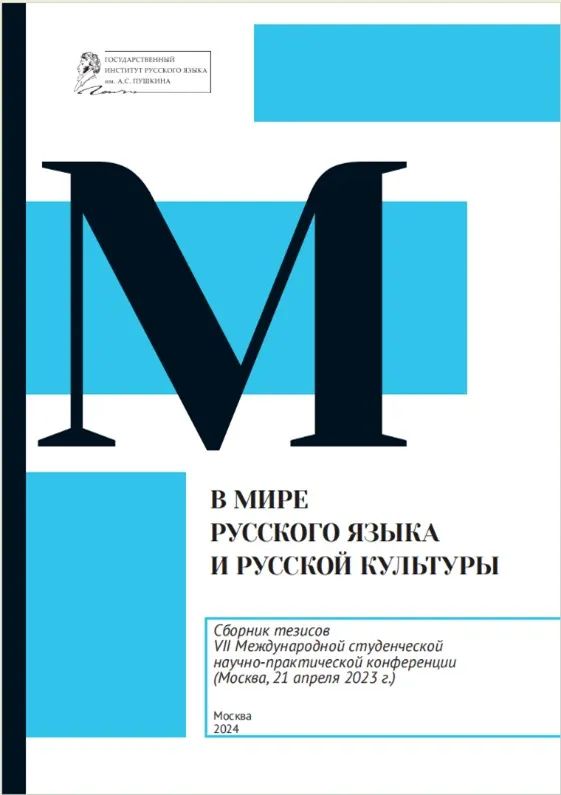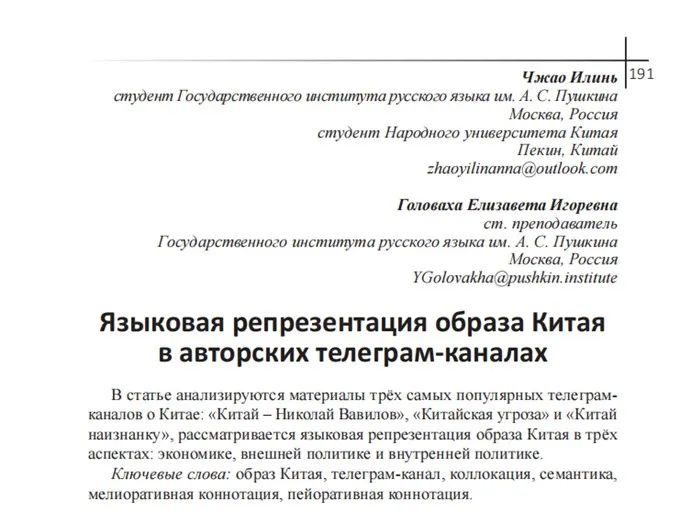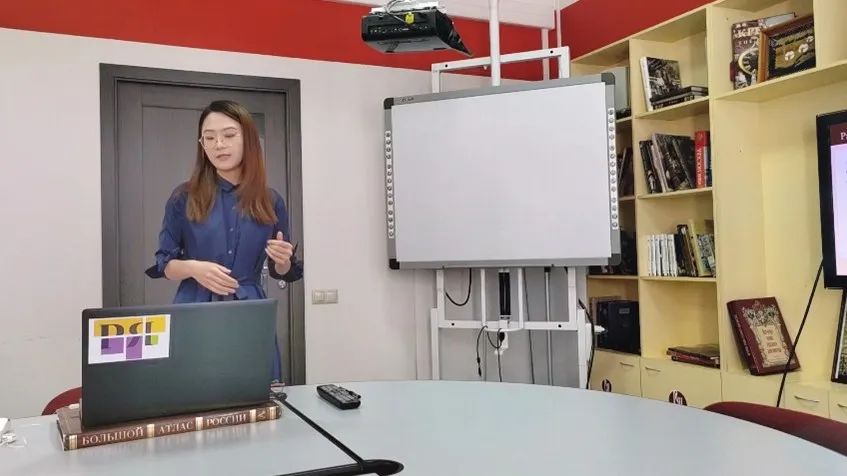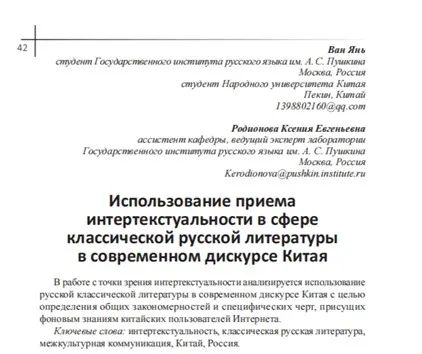Students from Russian Department of Our School Published Papers in Russia
DATE: 2024-05-08
Recently, Zhao Yilin and Wang Yan, two 2020 undergraduate students majoring in Russian of our school, have successfully published papers. Zhao Yilin's paper is titled "Языковая репрезентация образа Китая в авторских телеграм-каналах" ("The Linguistic Representation of China's Image on Telegram Channels"), while Wang Yan's paper is titled "Использование приема интертекстуальности в сфере классической русской литературы в современном дискурсе Китая" ("Research on the Application of Intertextuality in Russian Classical Literature within Contemporary Chinese Media"). The papers explore the multidimensional impacts of China-Russia cultural exchanges, with one focusing on media communication and the other on literary intertextuality.
Zhao Yilin and Wang Yan, funded by the China Scholarship Council, studied at the Russian State Pushkin Institute of Russian Language as exchange students during the 2022-2023 academic year. There, they participated in and presented their papers at the 7th International Academic Conference "Russian Language and Russian Cultural World". The conference, organized by the Department of Russian as a Foreign Language of Pushkin Institute, aims to encourage young researchers to engage in academic creation and delve into modern Russian language research and teaching. The theme for the conference in 2023 is "Year of Professors and Supervisors," which aligns with the theme of "Year of Russian Language" in the CIS countries.

Proceedings of the 7th International Student Academic Practice Conference (Moscow, April 21, 2023)
Zhao Yilin's paper, "The Linguistic Representation of China's Image on Telegram Channels," focuses on media communication. The paper, by studying materials from three of the most popular Chinese channels in Russia, selects 16 typical corpora from three dimensions—economy, foreign policy, and domestic policy—and analyzes their linguistic characteristics. It summarizes China’s national image on Telegram and discusses the construction of China's image in linguistic expression. This research demonstrates the keen insight of our students in cross-cultural communication and analysis, which is of great significance in understanding China's image in international communication.


Wang Yan's paper, "The Application of Intertextuality in Russian Classical Literature in Contemporary Chinese Media," makes an in-depth analysis of the application of Russian classical literature in contemporary Chinese media from the perspective of intertextuality. The research not only reveals the cultural patterns in the background knowledge of Chinese internet users but also underscores the dialogue and influence between literary works, thereby offering a new perspective for understanding cultural exchanges between the two countries.

With meticulous and professional guidance from Russian instructors and strong support from our school's faculty, the two students successfully integrated a Chinese perspective into their papers at the forum. This integration reflects the contemplation of our students on global cross-cultural communication and the development of China's current external discourse system. Their accomplishments are a testament to the teaching achievements of our school in strengthening morality and nurturing well-rounded foreign language professionals. They also exemplify the demeanor of students at Renmin University of China in the new era.
In the context of building an education powerhouse in China, the School of Foreign Languages is proactive in responding to the national call. We further improve the innovative training system for top talents, providing students with professional academic training and a variety of opportunities for international exchange. Through these efforts, we are committed to cultivating foreign language professionals with a global vision and a profound academic foundation, and fostering pioneers who will participate in global governance and contribute Chinese wisdom.
